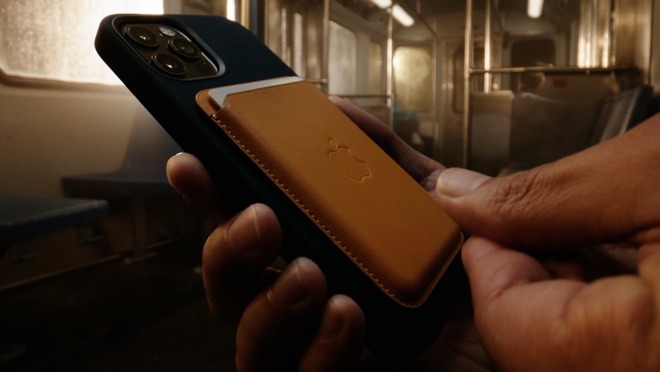A MagSafe-equipped smart case could enable an iPhone to run at a faster speed without harming the user, Apple believes, by allowing the iPhone to run at higher temperatures whenever it detects the presence of a case.

Apple's MagSafe-equipped cases and accessories are already detectable by the iPhone 12.
Electronic devices tend to get warm while being used, an issue that affects a lot of different electrical items, but especially those with processing capabilities. While this is easily observed in desktops and notebooks, it is also prevalent in mobile devices, such as iPhones and iPads.
By the nature of mobile devices needing a thin and compact design, phones and tablets can get warm through use, such as being used for heavy processing tasks or wirelessly recharging. The thermal management of processors and other chips has to be finely controlled, as there's not much room for error by generating too much heat.
Aside from potentially causing discomfort for the user while being held, heat can be a big issue for electronics. Heat can cause faults in metal structures within a circuit, weaken or melt solder connections at high-enough temperatures, or worse.
For the quality of life of users, as well as keeping the devices functional for longer periods, the heat has to be combatted, either by adding extra cooling or by reducing the performance of heat-generating components. Since adding external cooling to an iPhone isn't really practical, that typically entails throttling, something device users may not want.
A balance has to be struck for safety and usability, and that means erring towards throttling enough to be usable without being too warm for users to hold. However, if the device can determine that there's no risk to the user, it could potentially run warmer and closer to its limits.
The case could contain magnets and RFID, which could be sensed by the iPhone.
In a patent granted by the US Patent and Trademark Office on Tuesday titled "Smart case for a portable electronic device," Apple proposes that the problem of deciding whether to throttle a processor could be assisted by sensing if a case has been used. If a case is detected, it can safely run faster and generate more heat without risk of harm.
To do this, Apple suggests embedding magnets in a case, generating a magnetic field which can be detected by the iPhone or iPad by a Hall Effect sensor. By detecting the changes in fields in specific configurations, this would tell the iPhone there's a case installed.
If the case is detected, this could lift the running of the iPhone from running at or below a lower temperature threshold to a second higher threshold, at least while the case is installed. Once the case is removed, the lower temperature threshold is applied, and so a greater chance of throttling.
As part of the case sensing capabilities, Apple suggest it could include determining a magnetic field orientation associated with specific types of cases, which can then provide other benefits. For example different cases may have different thermal properties, allowing the iPhone to run at a different maximum temperature.
The use of NFC could also be used to detect the presence of a case, with the presence of an RFID tag in the case generating a signal readable by the iPhone.
The case would have elements that would trigger an iPhone's sensors.
Filed on February 20, 2019, the patent lists its inventors as Devon A. Monaco, Stephen T. Schooley, Lian Zhang, Ross D. Arriens, Lucy Elizabeth Browning, Richard Hung Minh Dinh, and Sawyer I. Cohen.
Apple files numerous patent applications on a weekly basis, but while the existence of a patent indicates areas of interest for Apple's research and development teams, they do not guarantee the existence of the concept in a future product or service.
As part of the iPhone 12 range launch, Apple introduced its MagSafe-compatible case and accessory range, which relies on magnets to attach things to the back of the iPhone. Apple also includes case detection in the line, with the iPhone 12 recognizing the case being installed and playing a color-matched animation on the display as a confirmation. This also enables the iPhone 12 to color-match the clock background for the leather sleeve.
While it doesn't seem that adjusting thermal throttling settings based on the presence of a case has been implemented so far, this does prove that Apple has the capability to detect if a suitable case is being used, and opens up the possibility of such a system being used in the future.


